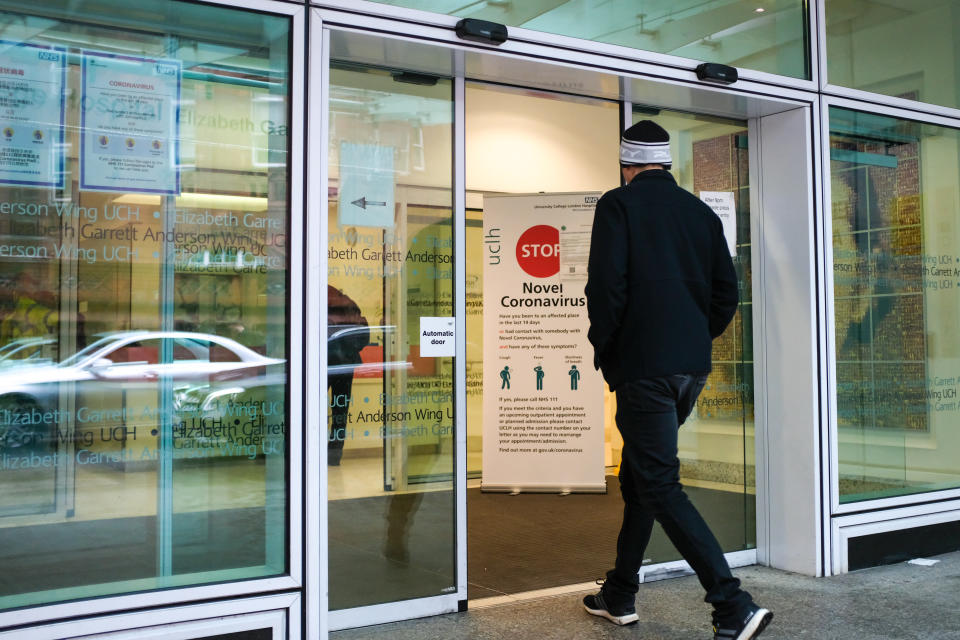Coronavirus: Nurses 'forced to hold their breath' due to lack of PPE

Doctors and nurses are having to “hold their breath” while treating coronavirus patients because of a lack of personal protective equipment (PPE).
Dr Rinesh Parmar, of the Doctors' Association, said 43% of doctors his organisation surveyed have no eye protection at all and 20% don't have them for the most severe and high risk procedures.
He told Sky News’ Sophy Ridge On Sunday programme that there are massive shortfalls in the amount of PPE being handed out to NHS staff despite government assurances that more equipment would enter circulation.
“Doctors have said that they’re having to reuse masks that should be single-use only, and that sometimes they’re talking to nurses and nurses are doing some of these high-risk procedures and they’re trying to hold their breath because they’re unsure and unaware of whether the mask they have been provided is going to offer them adequate protection,” Dr Parmar said.

Dr Parmar added: “This is really harrowing to hear some of these stories across the NHS.”
He also said that alongside the safety of patients, the safety of the NHS workforce “is our paramount concern”.
“Given the severe lack of PPE that is getting through, we’re all very concerned about potentially losing more colleagues,” he said.
Latest coronavirus news, updates and advice
Live: Follow all the latest updates from the UK and around the world
Fact-checker: The number of COVID-19 cases in your local area
6 charts and maps that explain how coronavirus is spreading
“It’s sad to hear that we’ve already lost doctors and nurses in the line of duty, doing their very, very best for patients, and none of us wants to hear further stories of frontline staff losing their lives.”
On testing, Dr Parmar said it would be “welcome news” to see in practice that it is being increased, adding: “We’ve heard from doctors who have been sent to a testing centre only to be turned away and told that their name doesn’t appear on a list.

“These are individuals who are isolating, who may not currently have symptoms but may, for example, have family members with symptoms.”
There has been an outcry over a lack of PPE as shortages have led to shortfalls on the NHS frontline, and supply problems throughout England have hampered delivery efforts.
Staff have reported being “petrified” over a lack of kit while others have been left in tears as they fear for the safety of themselves and their families.
Some say they have even been threatened with reprisals if they speak out about concerns.
New guidance issued by the government earlier this week says that while gloves and aprons should be disposed of after a single use, masks and eye protection can be used for a session of work.

Gowns can also be worn for a session of work in higher risk areas, it says.
The UK-wide guidance has been agreed by the UK’s four chief medical officers, chief nursing officers and chief dental officers in the UK.
Dr Yvonne Doyle, medical director of Public Health England said: “Protecting our NHS colleagues on the frontline is vitally important.
“This updated guidance provides a greater degree of clarity so that NHS clinicians caring for patients feel confident in the PPE they need to wear.
“Our standards are amongst the highest in the world and in line with what WHO recommends in circumstances and settings with the highest risk of transmission.”
Coronavirus: what happened today?
Click here to sign up to the latest news, advice and information with our daily Catch-up newsletter

 Yahoo News
Yahoo News 
